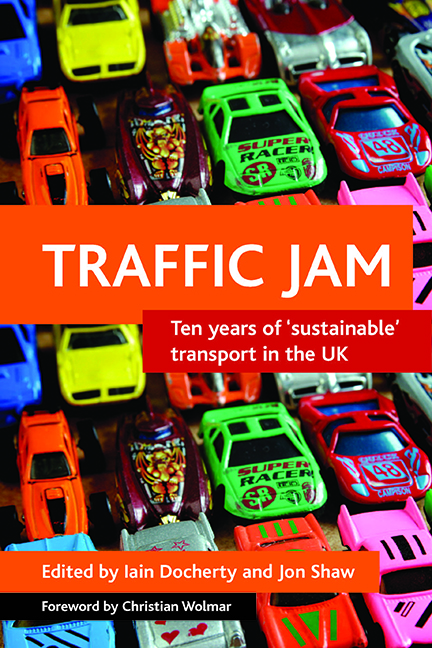Book contents
- Frontmatter
- Dedication
- Contents
- List of tables, figures and boxes
- Foreword
- Preface and acknowledgements
- List of acronyms
- Notes on contributors
- Part One Policy and politics
- Part Two Progress in policy implementation
- Part Three Ten years since A new deal for transport – signposts to the UK’s transport future?
- Index
Preface and acknowledgements
Published online by Cambridge University Press: 21 January 2022
- Frontmatter
- Dedication
- Contents
- List of tables, figures and boxes
- Foreword
- Preface and acknowledgements
- List of acronyms
- Notes on contributors
- Part One Policy and politics
- Part Two Progress in policy implementation
- Part Three Ten years since A new deal for transport – signposts to the UK’s transport future?
- Index
Summary
This book is about transport developments in the UK since the publication of the landmark White Paper A new deal for transport in 1998 (DETR, 1998). The state of British transport had become unacceptable according to the incoming Labour government (and many others), and ministers were to improve considerably our transport systems and seek to change the way we travel. Key to this strategy was persuading us all to be more sustainable by using ‘our cars a little less and public transport a little more’ (DETR, 1998, p 3). Labour's theme song for the 1997 General Election was D:Ream's Things can only get better, and leitmotifs of Blair's (and now Brown’s) governments have been to argue (a) that this has been the case and (b) how much better Britain is doing than its European competitors. We leave comment on other policy areas to colleagues, but 10 years after the White Paper both of these statements are difficult to uphold in relation to transport, and particularly sustainable transport. Promoting sustainable transport is undeniably problematic and involves a mix of sometimes controversial ‘sticks’ (such as road user charging) to make people use their cars less, and ‘carrots’ (such as hugely improved public transport) to provide a realistic choice of quality alternatives. There also has to be a focus on reducing the need to travel, and key here are so-called ‘soft’ or ‘smart’ measures that can be very effective at increasing the frequency with which people walk, cycle or simply stay put.
For the purposes of illustration, let us take the particularly juicy carrot of major capital investment in public transport systems. A recent report by the consultants Grant Thornton (2008) lamented that British cities have been talking about light rail and other sizeable transport improvement schemes for longer than it has taken their European competitors to actually build them. In France, 2007 alone saw the opening of the second fully automatic metro line in Toulouse, a short extension to Line A in Lyon, a second extension to Paris’ automatic Metro Line 14, the opening of the circumferential Tram T3 along the southern perimeter of the capital, the first lines of new tram networks in Le Mans, Marseille and Nice, Line D in Grenoble, Line E in Strasbourg and extensions to other modern tram networks in Bordeaux, Clermont Ferrand, Nantes and Valenciennes.
- Type
- Chapter
- Information
- Traffic JamTen Years of 'Sustainable' Transport in the UK, pp. xi - xvPublisher: Bristol University PressPrint publication year: 2008



